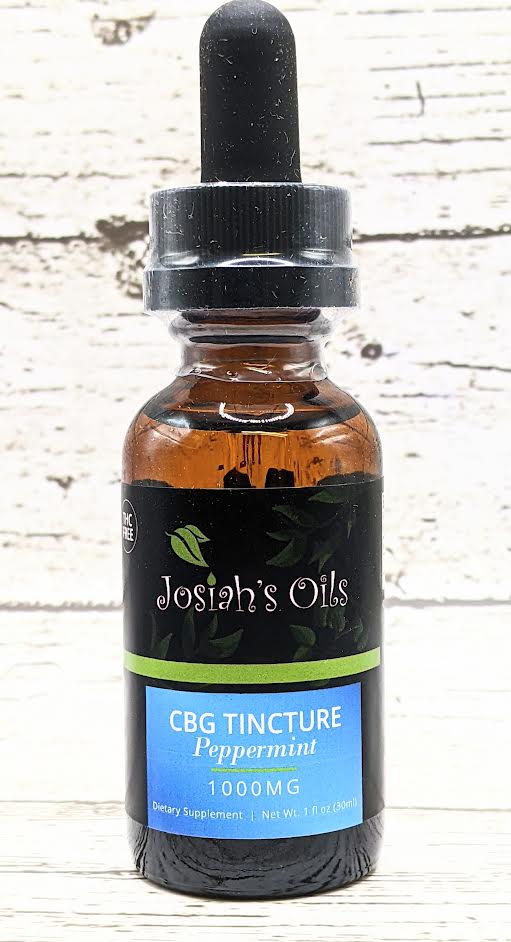- Store
- >
- Organic Hemp CBD
- >
- CBD Droppers
- >
- CBG 1000 mg
CBG 1000 mg
CBG has no psychotropic effects. Based on the research CBG’s benefits could include combating anxiety, pain, inflammation, as well as providing you with neuroprotective and antibacterial effects.
Anxiety - CBG offers potent anxiolytic (anti-anxiety) benefits and potentially manages anxiety symptoms. https://www.mdpi.com/2075-1729/10/10/227/htm Similar to CBD, CBG also prevents enzymes from breaking down anandamide, an endocannabinoid responsible for dopamine production. Dopamine is a hormone and neurotransmitter that positively impacts mood, pleasure, reward, sleep, and appetite. CBG’s anti-anxiety benefits are best in combination with CBD.
Neurological issues: CBG is a neuroprotectant. Neuroinflammation is associated with many neurodegenerative diseases, including amyotrophic lateral sclerosis (ALS). CBG (& CBD together) might reduce neuroinflammation associated with ALS. https://pubmed.ncbi.nlm.nih.gov/31752240/
Neuroprotection refers to safeguarding and defending your nerves from dying off or degeneration. Conditions that could damage or injure your nervous system include Parkinson’s disease, Alzheimer’s disease, multiple sclerosis, and diabetes. A study showed that CBG can reduce pain. Neuroinflammation is associated with many neurodegenerative diseases, including amyotrophic lateral sclerosis (ALS) (see above)
Antibacterial: One of CBG’s benefits may be is its antibacterial properties. Researchers in Canada discovered CBG essentially eliminated numerous strains of Methicillin-resistant Staphylococcus aureus (MRSA), a stubborn staph bacteria resistant to most antibacterial agents. CBG eliminated MRSA bacteria by preventing biofilm formation, a protective layer of microorganisms covering its cytoplasmic membrane. (rodent study)
Pain: One of CBG’s most promising benefits is its ability to reduce symptoms of pain and inflammation. CBG shows some affinity with your CB1 and CB2 receptors and inhibits reuptake and elimination of GABA, meaning it acts as a potential muscle relaxant for patients with spasticity. A survey of 127 patients using CBG-dominant products for medical conditions is interesting. Of the 127, 40.9% use CBG for chronic pain, with most stating it “much improved” or “very much improved” symptoms. 73.9% of patients using CBG for chronic pain say it’s superior to conventional medicines.
A study has provided evidence that CBD and CBG formulated appropriately exhibit anti-inflammatory activity. "Our observations suggest that these non-psychoactive cannabinoids may have beneficial effects in treating diseases characterised by airway inflammation."
https://pubmed.ncbi.nlm.nih.gov/34082108/
CBG may have a great benefit for those suffering from inflammatory bowel disease. https://pubmed.ncbi.nlm.nih.gov/23415610/ and https://medcraveonline.com/IJCAM/nano-processed-cbgcbd-effect-on-pain-adult-attention-deficit-hyperactive-disorder-irritable-bowel-syndrome-and-chronic-fatigue-syndrome.html
ALWAYS speak to your doctor about adding supplements to your daily routine.
Use code: FREESHIPPING

